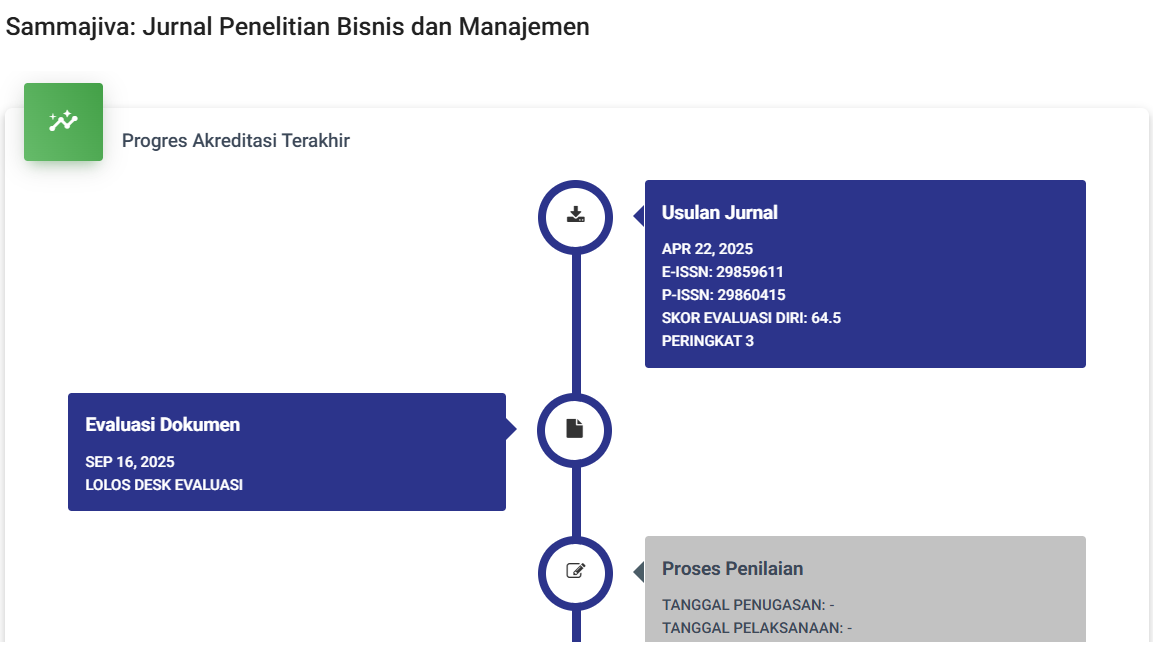The Influence of Interpersonal Communication Skills, Parenting Styles, AI Integration, and School Environment on Learning Motivation
DOI:
https://doi.org/10.47861/sammajiva.v1i1.934Keywords:
Learning Motivation, Interpersonal Communication Skills, AI IntegrationAbstract
This study investigates the intricate dynamics among interpersonal communication skills, parenting styles, AI integration, and school environment in influencing learning motivation. The research aims to discern how these factors interplay and impact students' motivation to learn. Employing a phenomenological research model, the study employs purposive sampling to select participants, consisting of students, parents, educators, and AI integration specialists. Data collected through interviews and observations are analyzed using thematic analysis techniques. Preliminary findings reveal multifaceted relationships between these variables, highlighting the significant role of supportive interpersonal communication, authoritative parenting styles, effective AI integration, and conducive school environments in fostering intrinsic motivation among learners. This research contributes to a nuanced understanding of the complex mechanisms underlying learning motivation in contemporary educational settings.
References
Baumrind, D. (1971). Current patterns of parental authority. Developmental Psychology Monographs, 4(1), 1-103.
Braun, V., & Clarke, V. (2006). Using thematic analysis in psychology. Qualitative Research in Psychology, 3(2), 77-101.
Creswell, J. W., & Poth, C. N. (2018). Qualitative inquiry and research design: Choosing among five approaches. Sage Publications.
Deci, E. L., & Ryan, R. M. (2000). The "what" and "why" of goal pursuits: Human needs and the self-determination of behavior. Psychological Inquiry, 11(4), 227-268.
Gonzalez, J. E., Nelson, J. R., Gutkin, T. B., & Saunders, A. (2012). Reducing behavior problems through a parent-training program: Improving parent-child relationships by implementing social learning theory. Education and Treatment of Children, 35(4), 529-550.
Maccoby, E. E., & Martin, J. A. (1983). Socialization in the context of the family: Parent-child interaction. In P. H. Mussen (Ed.), Handbook of Child Psychology: Vol. 4. Socialization, Personality, and Social Development (4th ed., pp. 1-101). Wiley.
Maulida, A., & Hadi, S. P. (2021). Strategi Public Relations dengan Komunikasi Interpersonal Mengenai Minat Belajar Anak. Prosiding Jurnalistik, 489–492. https://karyailmiah.unisba.ac.id/index.php/Jurnalistik/article/view/27264
Palinkas, L. A., Horwitz, S. M., Green, C. A., Wisdom, J. P., Duan, N., & Hoagwood, K. (2015). Purposeful sampling for qualitative data collection and analysis in mixed method implementation research. Administration and Policy in Mental Health and Mental Health Services Research, 42(5), 533-544.
Pintrich, P. R., & De Groot, E. V. (1990). Motivational and self-regulated learning components of classroom academic performance. Journal of Educational Psychology, 82(1), 33-40.
Plass, J. L., Homer, B. D., & Kinzer, C. K. (2014). Foundations of game-based learning. Educational Psychologist, 50(4), 258-283.
Ruslaini, R., Sugiharti, T., Hermanu, D. H., Wulandari, W., & Harahap, S. (2021). Studi Fenomenologi Pola Asuh Anak oleh Wanita Indonesia dalam Perkawinan Campur di Eropa dan Kanada. Perspektif, 10(2), 656–663. https://doi.org/10.31289/perspektif.v10i2.5003
Ryan, R. M., & Deci, E. L. (2017). Self-determination theory: Basic psychological needs in motivation, development, and wellness. Guilford Publications.
Saunders, B., Sim, J., Kingstone, T., Baker, S., Waterfield, J., Bartlam, B., & Jinks, C. (2018). Saturation in qualitative research: exploring its conceptualization and operationalization. Quality & Quantity, 52(4), 1893-1907.
Thapa, A., Cohen, J., Guffey, S., & Higgins-D'Alessandro, A. (2013). A review of school climate research. Review of Educational Research, 83(3), 357-385.
Velez, J., Mahoney, J. L., Avery, L., & Fitzgerald, H. E. (2020). Peer influence and academic motivation: Variations by ethnicity. Journal of Youth and Adolescence, 49(3), 553-565.
Wang, M. T., & Degol, J. L. (2016). School climate: A review of the construct, measurement, and impact on student outcomes. Educational Psychology Review, 28(2), 315-352.
Wentzel, K. R. (2009). Students' relationships with teachers as motivational contexts. In K. R. Wentzel & A. Wigfield (Eds.), Handbook of motivation at school (pp. 301-322). Routledge.
Winne, P. H., & Hadwin, A. F. (2013). nStudy: Tracing and supporting self-regulated learning in the Internet. In M. C. Reilly, M. C. Reilly, & M. C. Reilly (Eds.), Assessment and teaching of 21st century skills (pp. 255-283). Springer.
Yulianti, G., Chaidir, M., & Permana, N. (2022). The Influence of Entrepreneurship Education and Industrial Work Practices on Interest in Entrepreneurship in State Vocational High School Students in the Central Jakarta Region. Jurnal Ad’ministrare, 9(2), 729. https://doi.org/10.26858/ja.v9i2.42945








